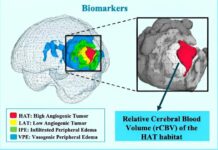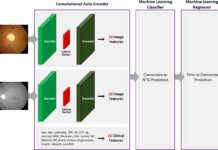Cancer research is one of the most important fields of study in medicine today. Researchers are continuously racing to discover new drugs or therapies that can help cure different kinds of cancers.
Recently, a group of scientists from UCL has revealed a new and innovative method to fight cancer. It targets a gene called Lrg1 which causes abnormal angiogenesis (formation of blood vessels) within tumor margins.
As study author Professor John Greenwood from the UCL Institute of Ophthalmology explains, decreased blood flow and oxygen supply make tumors more “aggressive”. It also limits the pathway for therapeutic drugs to reach the tumor cells. As a result, treatment becomes inefficient and also helps the cells become more resistant.
“We asked whether blocking the activity of a novel molecule that damages blood vessels, namely LRG1, would allow vessels to grow more normally thus reducing tumor expansion and, most importantly, enhancing the delivery and efficacy of other drugs. كيف ربح المال ”
– PROFESSOR GREENWOOD
The article, published in MED, outlines a pre-clinical study involving mice models with tumorous tissues. The mice were administered the Lrg1 antibody as monotherapy and in combination with other common tumor treatments like chemotherapy and various immunotherapies.
They found that the antibody when used alone, leads to normal angiogenesis. As a result, the blood supply was unhindered and the tumor grew at a normal pace.
When the antibody treatment was used in combination with other immunotherapies, the improved blood supply had a synergistic effect that increased cancer cell destruction. 888 كازينو The effect even enhanced tumor response to CAR-T cell therapy and checkpoint inhibitor therapies. These therapies previously did not work well on solid tumors such as glioblastomas and carcinomas. قوانين البوكر بالصور
So where did the concept of using Lrg1 for cancer treatment come from?
The idea arose when the same research team from UCL Institute of Ophthalmology discovered that Lrg1 was the root cause for abnormal angiogenesis in the human eye. They published their study, also conducted on mice models in Nature in 2013.
Now, the researchers have successfully engineered the human version of the Lrg1 antibody, which they call Magacizumab. They look forward to studying its effect on both cancer and eye pathologies in upcoming clinical trials.
Source:
UCL News




